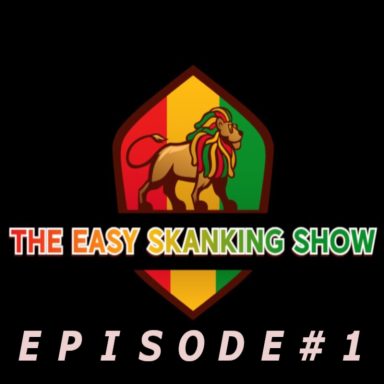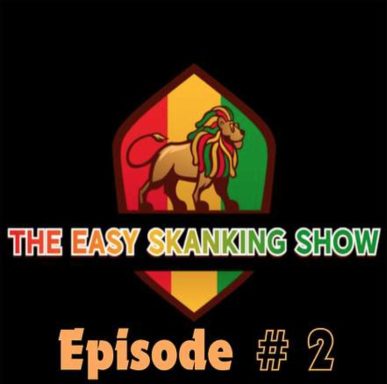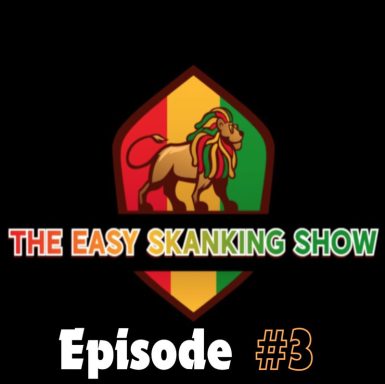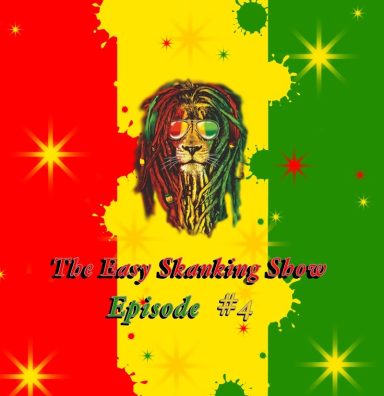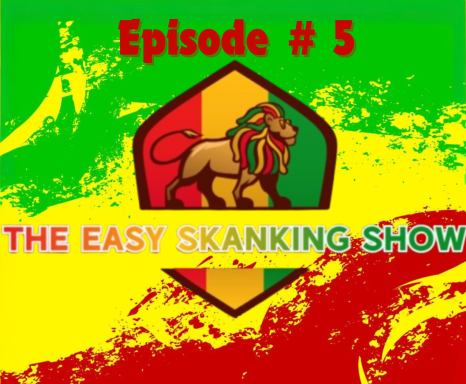Welcome to The Easy Skanking Show
Dive into reggae's rich history and uplifting sounds. Join us weekly as we celebrate classic tracks and emerging artists.
Experience the Spirit of Reggae
Welcome to The Easy Skanking Show, your ultimate destination for everything reggae!
Join us as we dive into the rich history, vibrant culture, and uplifting sounds of reggae music.
Each week, we’ll explore classic tracks, highlight emerging artists, and provide insightful stories.
Whether you're a lifelong reggae lover or new to the scene, our podcast promises to enlighten, entertain, and inspire.

Classic Tracks
Discover timeless reggae classics as we take you through the history of influential artists and songs.
Emerging Artists
Stay updated with new talents in the reggae scene as we showcase fresh sounds and unique styles.

Cultural Insights
Learn about the rich cultural heritage that shapes reggae music and its impact on society.
Rasta Culture
The Rasta ideal is centered in simplicity and a natural way of living; Self-reliance in favor of materialism; Peace, not war—respect for all living beings; Opposition to the Babylon system: slavery, corruption, downpression, wickedness, all institutionalized within political, governmental, religious, colonialist systems. The original Rastafarians were rooted in Pan-African consciousness as espoused by Marcus Garvey, Leonard P. Howell, and others. The dignity of black peoples, repatriation to Africa, and the divinity of Haile Selassie I, are all essential cornerstones upon which the Rastafari consciousness is founded.
Many of the ideals, precepts, and codes of living within the Rastafari culture are derived from the Bible, most specifically The Nazarite Vows. The Nazarite Vows include dietary codes, as well as the doctrine of not letting the razor (or scissors) touch one’s head and hair. Also contained within the vows is the instruction to avoid corpses and graves. The Nazarite has separated him/herself wholly unto Jah, consecrated to Jah through the “clearly uttered” vows, to “be Holy” in the eyes of Jah. (Paraphrased from Numbers 6:2-8.)
Ital Diet and Living
“And God said, Behold, I have given you every herb bearing seed, which is upon the face of all the earth, and every tree, in the which is the fruit of a tree yielding seed; to you it shall be for meat.” (Genesis 1:29).
“Ital” refers to diet, but also may infer a wider ideal of purity, all again stemming from that which is put into the body, or Jah’s temple, the “Structure.” An Ital diet includes natural vegetarian or vegan foods (avoidance of all animal and dairy products—although some Rastas do eat fish), prepared without salt, additives and preservatives, and no processed flour or sugar. Similar to a kosher diet, pork and shellfish are foods that are prohibited in the Ital diet. Strict avoidance of alcohol, fermented drinks and foods, as well as grapes and other foods from vines are also practiced. Also shunned is processed tobacco, but welcomed is Sensimilla, for both eating and smoking. Cannabis being an unadulterated herb (some bearing seed), is welcomed as a God-given gift, a sacrament unto The Most High Jah. Pure, organic foods, unrefined foods are central to the Ital diet, and are said to be closest to the essential Life Force, especially as no killing or blood is involved in Ital “livity” (Rasta living). As ordained in Genesis 1:29, the Ital diet is a natural path reaping only that which grows naturally upon the Earth.
Dreads
“Not every dread is a Rasta and not every Rasta is a dread…” (common Rasta saying/ wisdom)
Adherents to the Rastafarian faith let their hairs grow together, to “dread,” or “locks up.” Dreadlocks symbolize a Rasta’s covenant with The Creator, Jah, and natural ways of life and living. Although there are many cultures through time that have practiced dreading the hair, Rastas sight the Bible for the inspiration to let the hair form dreads. Many Rastas take The Nazarene vows (Numbers 6:5) which include the doctrine: “there shall no razor come upon his head. Until the days be fulfilled in that which he separated himself unto Jah, he shall be holy, and let the lock of the hair of his head grow long.” Also from Leviticus 21:5: “They shall not make baldness upon their head, neither shall they shave off the corner of their beard, nor make any cuttings in the flesh.”
Rastas may make the distinction between a “dread” (a person merely sporting dreadlocks as a style) and a “Rasta” (one who follows a clean, Ital way of life, and praises Hailie Selassie).
“You Don’t haffi dread to be Rasta,” (Morgan Heritage).
“Although I’ve lost my dread, I haven’t lost my sight. And until my day of rest, I will follow your light” (Pato Banton).
“It’s not the dread upon your head, but the love inna your heart, that mek ya Rastaman” (Sugar Minott).
Patois
The language of Rastas is heard throughout reggae music, the Caribbean, and the world at large. Jamaican patois is a creole form, amalgamating English and African dialects, as well as Hindi, Spanish, and Portuguese. Many Jamaicans speak some degree of patois, depending on the formality of a given situation—seen in life as in music, patois is used to varying degrees within reggae.
The Rastafarian Patois tends to borrow and change words from English, uplifting some of the sounds found therein. “I” replaces me, and “I and I” for you. Rastafarian scholar E. E. Cashmore writes: “I and I” is an expression to totalize the concept of oneness, the oneness of two persons. So God is within all of us and we’re one people in fact. I and I means that God is in all men. The bond of Ras Tafari is the bond of God, of man. But man itself needs a head and the head of man is His Imperial Majesty Haile Selassie I (always pronounced as the letter “I,” never as the number one) of Ethiopia.”
Rastas will “livicate” instead of “dedicate,” taking “dead” out of the equation.
“Oppression” becomes “downpression,” as the “Up” sound is replaced by “down” in regards to physical, spiritual and/ or mental burden.
“Understanding” becomes “overstanding” as another term for elevating our conscious perspective. “Conscious” may become “I-scious” to avoid any “con” in the word— “I-scious” also becomes “Ishence” in reference to the Holy Herb ganja, which provides meditation, sacrament, and lifts the mind…
“Enjoy” becomes “full-joy,” as “En” takes on the sound of “end, or end-joy.” “Appreci-love” replaces “appreciate,” negating the sound of “hate” in “appreciate.”
For more on Rastafarian vocabulary, check:
wikipedia.org/wiki/Rastafarian_vocabulary
www.speakjamaican.com/glossary.html
niceup.com/patois.txt
©Copyright. All rights reserved.
We need your consent to load the translations
We use a third-party service to translate the website content that may collect data about your activity. Please review the details in the privacy policy and accept the service to view the translations.

